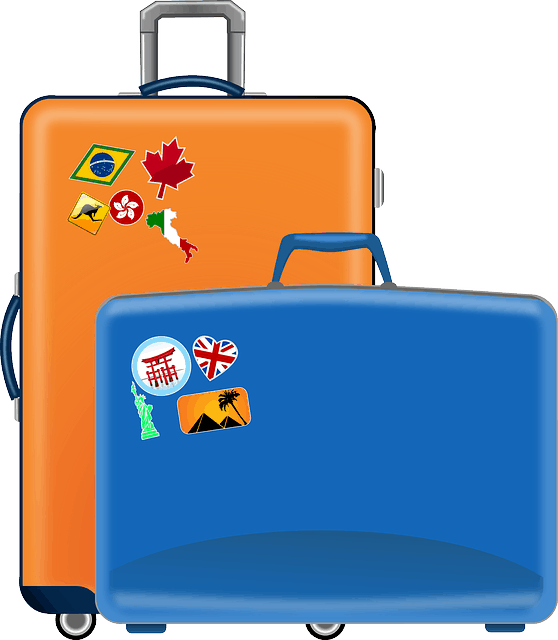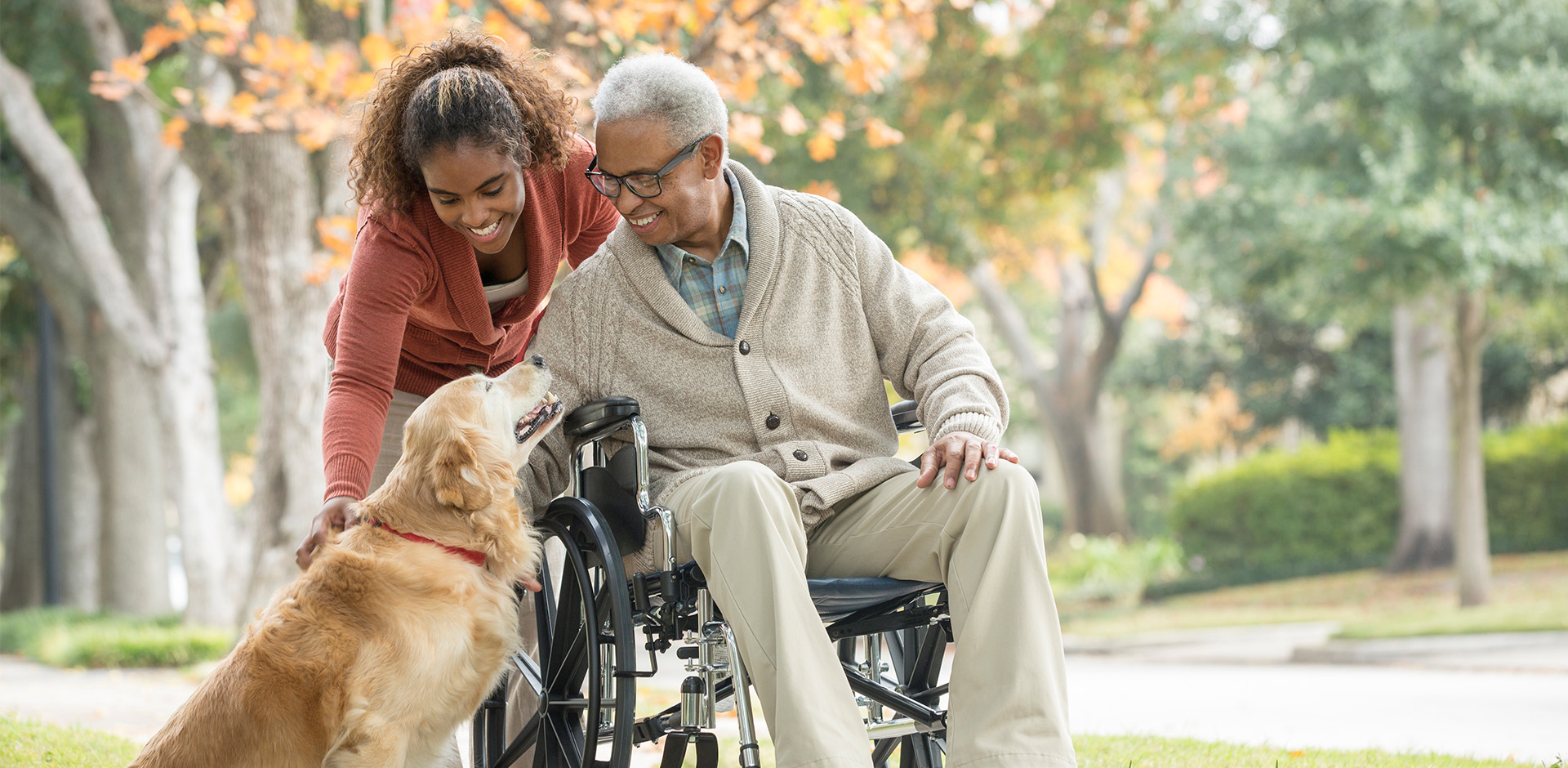Traveling with Peripheral Neuropathy
While traveling with peripheral neuropathy presents challenges, you can still follow your dreams to see the world. FPN has pulled together some tips from experts so you can know what to expect as you plan that next vacation.
Step 1: The Plan
When traveling with peripheral neuropathy, or any chronic health condition, there is no such thing as too much planning or planning too far in advance. The internet has valuable resources for traveling with disabilities- where to go, what to look for, and questions to ask. Most places that are used to seeing tourists will have accommodations for travelers with disabilities available at hotels, for transportation, and other services. However, accommodations for travelers with disabilities may be limited or require reservations in advance.
As you make your plans, recognize that you may not be able to do as much or everything during your visit as you would like. Traveling can be tiring for anyone, but for people traveling with mobility issues, chronic health conditions, or disabilities, it can be especially tiring.
Another good tip is to learn enough foreign vocabulary that can help you describe your situation, your health, and your needs to the various service providers you meet, be it hotels, tour companies, transportation companies or others.
Getting there by Air
There are many options for getting to your destination- car, train, cruise, plane. If you choose to fly, most airlines will provide services at the airport, onto the flight and during the flight. Any service must be booked at least 48 hours in advance.
A recommendation from a frequent traveler with peripheral neuropathy is to book a seat where you can stretch and move if you can. Long flights without moving can make the symptoms worse.
Once You’re There: Getting Around
As advised by Mobility International USA (MIUSA), “the main thing about visiting another country is that it involves traveling extremely long distances, which can challenge your daily routine. People with type I diabetes find that they have to ingest more calories and readjust their insulin schedule. People who can get around sufficiently well using a support cane find themselves using more wheeled transportation options like taxis, buses, wheelchairs and travel scooters. Cobblestones, irregular steps, narrow or nonexistent sidewalks or excessively high curbs are different to what you would find in many US cities. Plan how you will get around in your destination.”
You can find tips from MISUSA here: https://www.miusa.org/resource/tipsheet/transportation.
Other transportation tips:
- Many metros/trains systems offer maps of accessible stations.
- Many cities offer services like Lyft, Uber or local alternatives like Bolt, available in Budapest.
- You may have to step up the devices you use for walking. You may consider using a cane on vacation or renting a wheelchair or scooter to allow you more mobility during your trip. Wheelchair or scooter rentals are available from local companies or can be borrowed at museums or other locations that you might visit. Confirm that such options are available before you arrive.
- Research the most accessible routes to the places you want to go. There may be options that do not require as much walking or are more accessible by car, wheelchair or scooter.
- Plan where you will go and how – and have a backup plan so you can enjoy your visit and get around safely.
- Organizations at your destination that cater to people with similar limitations as yours (such as associations for people with disabilities) will have information on how to best get around their city, where you might be able to rent a wheelchair or a scooter, and other local advice for managing their city.
While You Are there: Hotels
With limitations to mobility, it is important to make sure that your hotel or lodging accommodates your requirements. Shower chairs, grab bars, extra walking space in the room can all be arranged as long as it can be done in advance. Most hotels and lodging will make some accommodations for disabled travelers if you can make arrangements in advance.
MIUSA offers the following tips: https://www.miusa.org/resource/tipsheet/lodging
Looking After Your Health Away From Home
Medications:
If traveling with medications, research the rules for bringing your medication to your destination. Certain pain medications may be illegal.
MIUSA suggests:
- Bring a letter from your doctor and the prescription to prove that the medications were legally obtained elsewhere.
- Carry the medications in the original containers.
- Certain medications may still be illegal in the country you are visiting. The country’s consulate can often provide information on what may be brought in, and steps to follow. Often, you can even email the country’s consulate in the U.S. for this information.
- Check with the place where you will be staying about refrigeration if that’s necessary.
- When flying, it’s preferable to carry medications with you instead of checking them in with the airline.
MIUSA offers helpful tips for bringing medications abroad here: https://www.miusa.org/resource/tipsheet/medications:
Traveling with your prescription also allows you to get your medications replaced if you need them. It is always a good idea to travel on shorter trips with sufficient medication for the entirety of your trip. It is also a good idea to have a list of your medications, your doctors’ and healthcare providers’ names and contacts, and emergency contacts with you. You should keep a copy with you, a copy in your luggage as well as by your phone at home in case of emergency.
Health Insurance:
It is recommended to understand exactly how and if your health insurance will still cover you when you are traveling away from home. Travel Insurance is recommended if your health insurance does not cover you abroad or away from your home state. If you get travel insurance, be sure it covers pre-existing conditions so that you are well covered during your trip. Tips from MIUSA on health insurance can be found here: https://www.miusa.org/resource/tipsheet/healthcoverage
To Tour or Not to Tour
Arranging your trip through a tour company or travel agent that focuses on trips for people with disabilities can take the guesswork out of the planning process.
You can find many travel agents that specialize in travel for people with disabilities. A list of resources for travel agents that specialize in tours or trips for people with disabilities can be found here: https://www.disabled-world.com/travel/ and here: https://www.newmobility.com/2017/11/accessible-travel-agents/. Two agencies that have been recommended are Sage Travel (https://www.sagetraveling.com/) and Wheelchair Escapes (https://wheelchairescapes.com/).
You may be able to find tours and tour companies by doing a search for tour operators specializing in accessible travel in your destination country or city. If you do book a tour, make sure to ask:
- Is the guide licensed?
- how many people with disabilities have they guided in the past?
- what assistance you can expect from the tour guide? and
- Is the tour a private tour? Will there be other travelers on your tour that may or may not have the same challenges as you?
Double confirm any of your arrangements, even those arranged by the tour company, so you can be assured that you have what you need for your trip.
Most Importantly: Enjoy!
Travelling with peripheral neuropathy will require more planning and may have limitations. Whether going near or far, it is still possible to see the world!
Resources:
Mobility International USA (MIUSA) advises people with disabilities on how to study or volunteer abroad. MIUSA, funded by the US Department of State, seeks to encourage international exchange between the United States and other countries. A significant amount of information can be found on their searchable website (www.misusa.org) including tips and inspirational stories about people who study, work and volunteer overseas. For travel related to study abroad or volunteerism, MIUSA will answer questions directly at [email protected].
Disabled-World.com provides information about a wide variety of subjects related to seniors and disability news. Information about accessible travel can be found here: https://www.disabled-world.com/travel/ and here: https://www.disabled-world.com/travel/disability-travel-tips.php
Another interesting article on accessible travel can be found here: https://www.ricksteves.com/travel-tips/trip-planning/travelers-with-disabilities.







